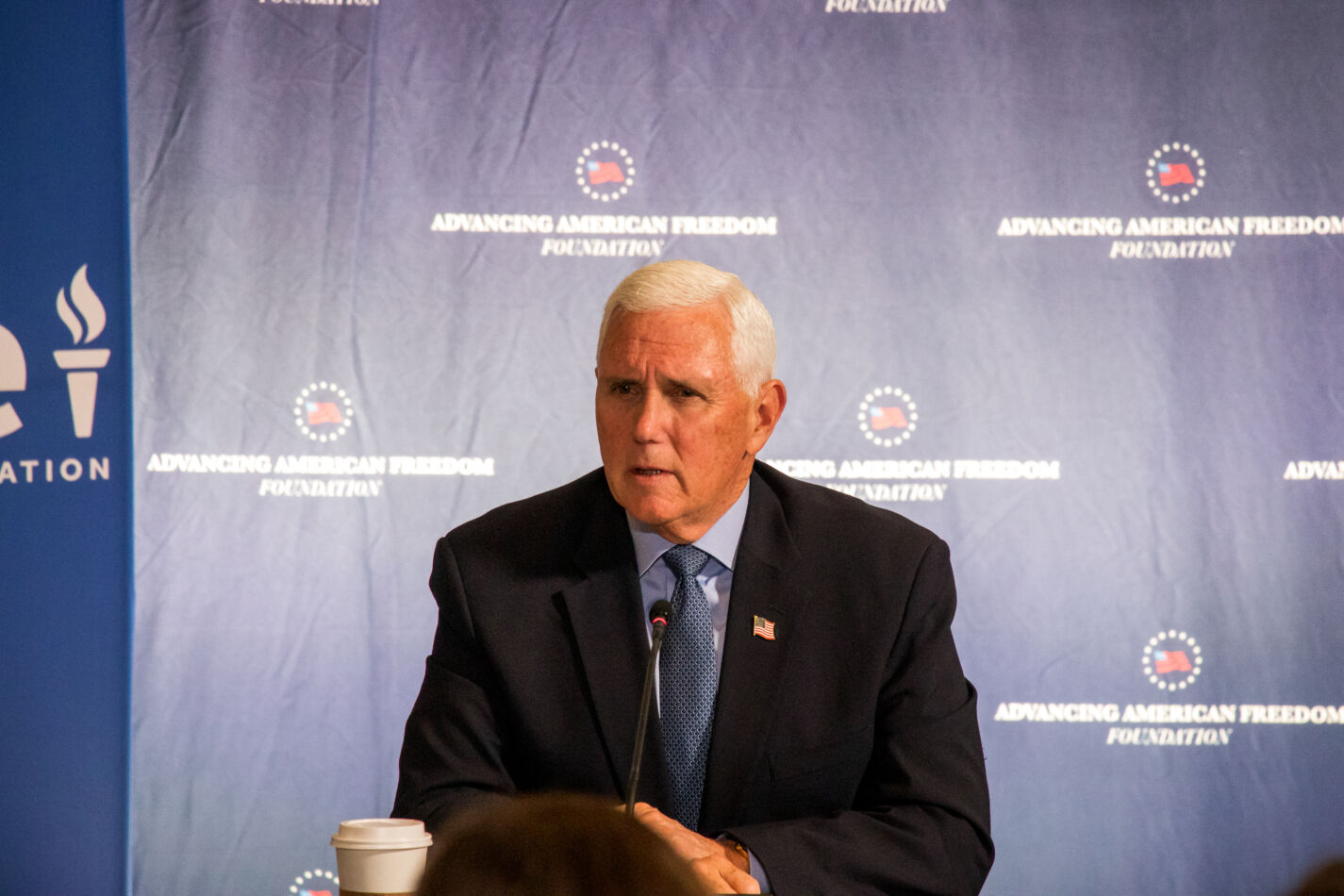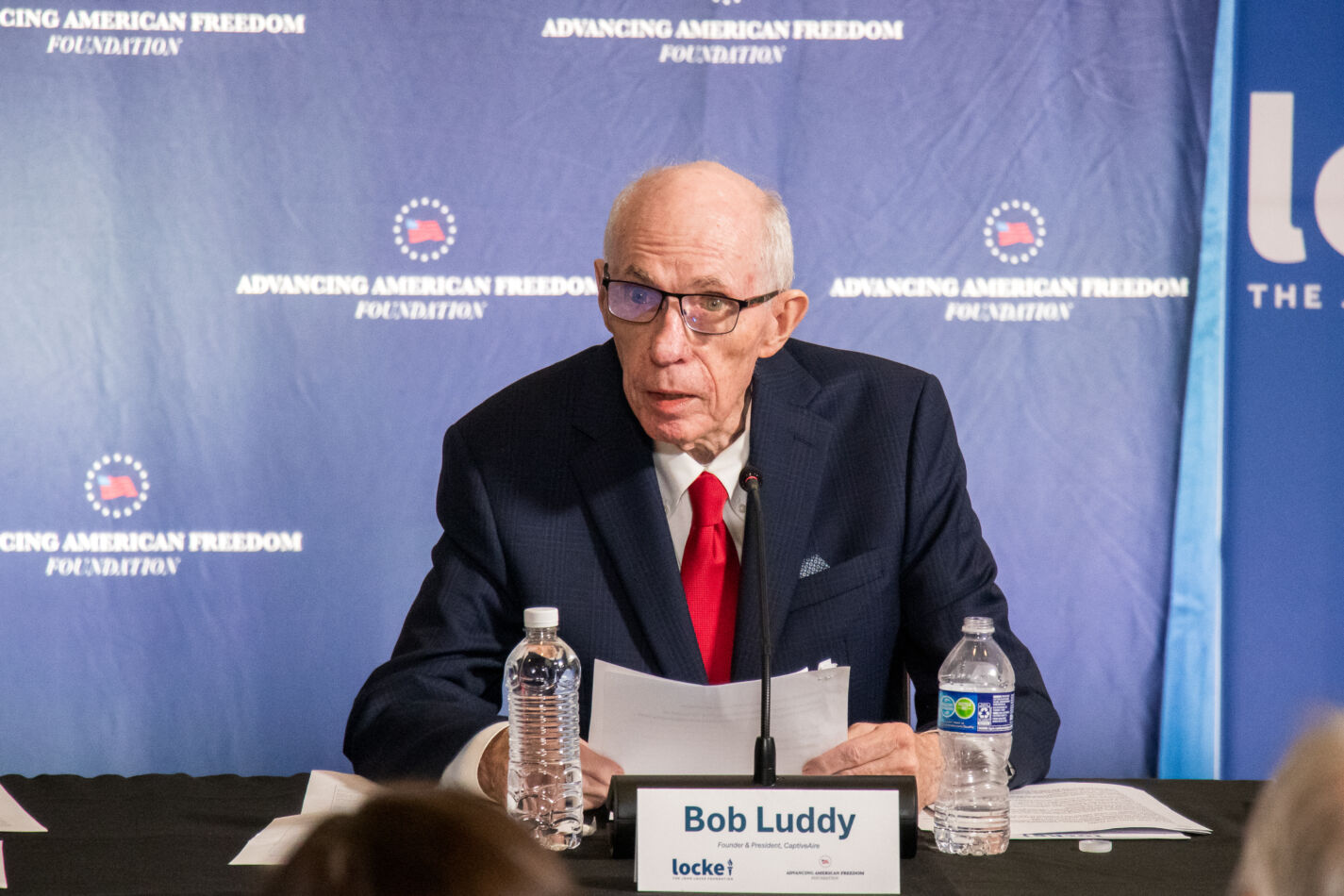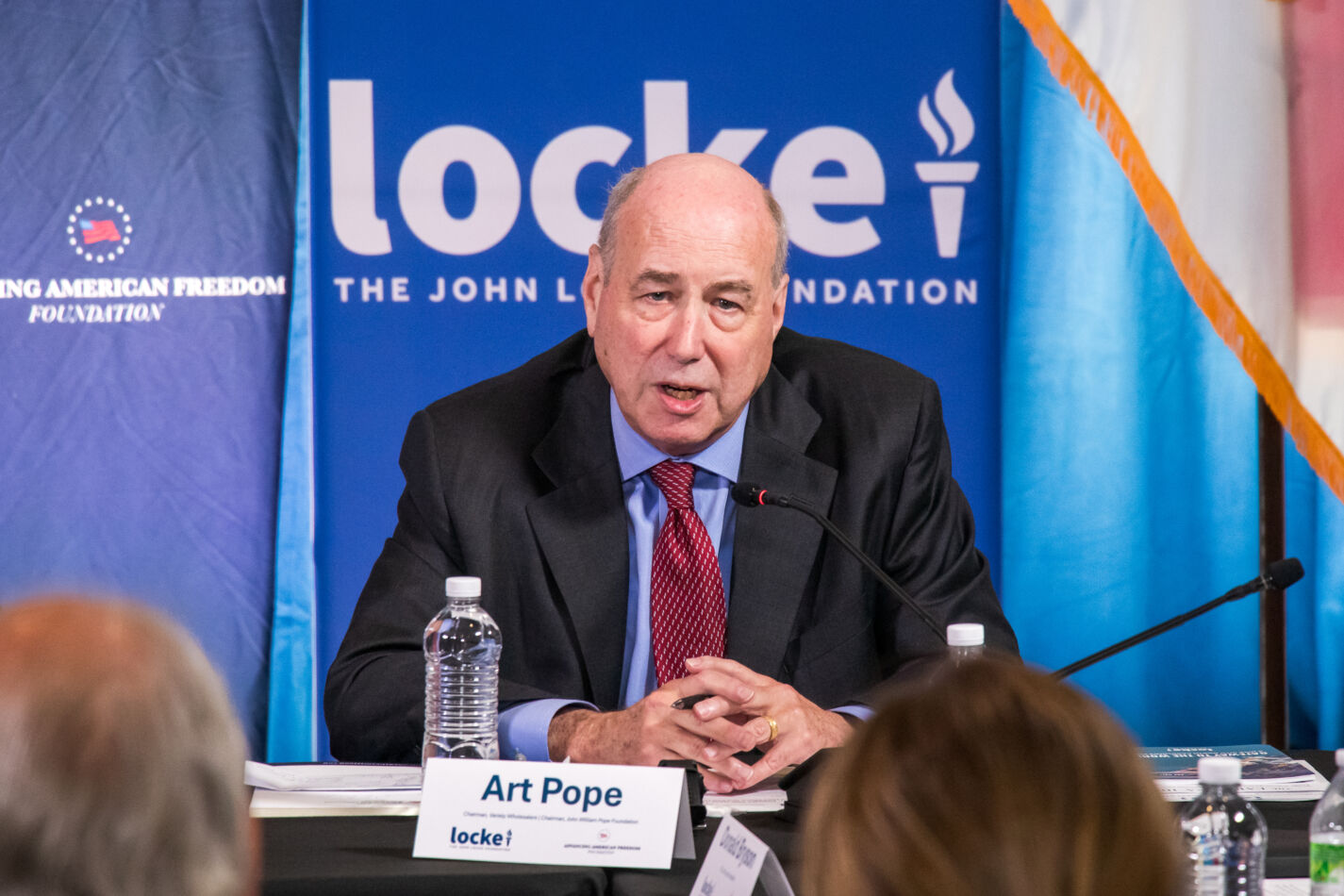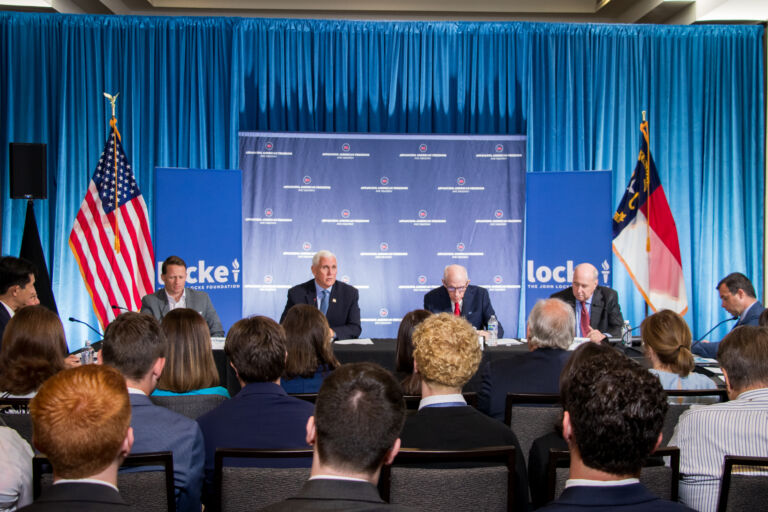Uncertainty caused by tariffs and the impact on the American consumer and the economy was the focus of a recent roundtable discussion of local policy analysts, experts, and business leaders, led by former Vice President Mike Pence and hosted by the John Locke Foundation and the Advancing American Freedom Foundation.
“I do believe that what’s new is there is an effort in this administration to bring forward permanent tariffs in the American economy on all goods,” said Pence. “We wanted to bring this conversation together in North Carolina so that we can help people count the cost of what that means to the American consumer. The president always says that countries that sell into America have to pay for the right to sell here. I remind him that it’s the American importers who actually pay the tariff.”
According to Pence, Trump always rebuts by arguing that foreign importers should have to pay for the privilege of selling in the United States. But, Pence said, the truth is that the American consumer ends up bearing the majority of the weight of the tariffs. He explained that the new tariffs are 10 times what they were during the Trump-Pence administration and are closer to the Smoot-Hawley tariffs, which many economists believe prolonged the Great Depression.
“One thing I know is that the most powerful force in Washington, DC, is the voice of the American people.”
VP Mike Pence
 Former VP Mike Pence Image by Jacob Emmons for Carolina Journal.
Former VP Mike Pence Image by Jacob Emmons for Carolina Journal.
According to Robert Luddy, president of CaptiveAire Systems, the tariffs have caused a price increase on steel of 25-60% of what would have been paid in 2017. He explained how CaptiveAire has seen cost increases in recent weeks due to the tariffs. These operations in the market can cause very severe problems and unintended consequences. Luddy said when free trade within the United States is allowed, as was established by the founders, it works perfectly, evidenced by the fact that the country now accounts for about 24% of the global GDP. Looking at the EU, they copied the United States with the exact same results.
“Most Americans know that freedom produces the highest results, but tariffs undermine that freedom,” said Luddy. “A weak US dollar creates a higher cost of imports, and along with the tariffs, it makes Americans less competitive internationally. Americans are essentially wealthy because of free trade, which we’ve enjoyed for the last 40 or 50 years. I believe that we should have unilateral free trade. There may be some exceptions like China, but that’s it.”
 Bob Luddy Image by Jacob Emmons for Carolina Journal.
Bob Luddy Image by Jacob Emmons for Carolina Journal.
Art Pope, chairman of the John William Pope Foundation and CEO of Variety Wholesalers, which owns and operates many discount retailers, explained the breakdown of the tariffs’ impact on the consumer and the retailer. The increased tariffs increase the product cost, which someone must pay for, either the retailer or the consumer.
According to Pope, Trump argues that the retailer needs to be the one to eat the cost, but due to tight profit margins, “We can’t eat the cost,” said Pope.
A local electronics manufacturer, GRT Electronics, told the Carolina Journal that their profit margin is basically nonexistent. The same manufacturer told CJ that sometimes the increased cost of the tariff can be passed along to the consumer once that price is established. If the retailer is not absorbing the cost of the increased tariffs, this leads to an increase in cost to the consumer.
Pope explained the negative impact of a well-intended tariff on retailers. When the cost of goods increases, sales will more than likely decline. When sales decline, that has to be accounted for somewhere. Companies have to reduce working hours or employees, or cuts have to be made somewhere to account for the reduction in sales.
“This is where a well-intended tariff actually has a harmful effect on Americans.”
Art Pope, CEO of Variety Wholesalers
The tariff results in less money, which means less money spent on other items, which will cost jobs.
“I agree with Vice President Pence and President Trump and many others that China is a unique situation; they are a strategic adversary,” said Pope. “They may become a cold, warm, or hot war enemy in the future, which I hope does not happen. But yes, China is different. And to the extent they do have stolen intellectual property, whether it’s a trademark or a technology, then those goods should just be outright banned and sanctioned. Yes, it’s important that America protect its critical strategic supply chain, whether it’s military, national security, or health care, as we learned during COVID.”
Pope articulated that there is uncertainty regarding the tariffs when the goods are imported. GRT Electronics told CJ recently that one of their biggest challenges is the constantly changing tariffs. He gave an example where 100 units of a specific part were purchased, when quoted at one rate, but with the tariff, the final price tag ended up double the original price due to the tariffs.
A textile wholesaler recently shared a similar struggle with CJ, saying that when she quotes a job for a customer, they expect that price, meaning if there is an increase, she either has to eat the cost, impacting her bottom line, or increase the customer significantly more than what was quoted.
 Art Pope Image by Jacob Emmons for Carolina Journal.
Art Pope Image by Jacob Emmons for Carolina Journal.
Panelist Howard Woltz III, president and CEO of InSteel Industries Inc., headquartered in Mount Airy, concurred with several other panelists that China is different regarding tariffs.
“China is different,” said Woltz. “China is almost solely responsible for the sad state of affairs that exists in the steel industry worldwide. That’s because China exports more steel than the US, the entire size of the US market, and they export it at ever lower prices. There is no price low enough because those companies aren’t forced to make a profit.”
Panelist Chris Chung, CEO of the Economic Development Partnership of North Carolina (EDPNC), noted that uncertainty and volatility, particularly uncertainty, best describe the tone of the last few weeks.
“It has been a really challenging environment to try to figure out where this is all going to land,” said Chung. “I don’t think any of us know, I’m not even sure some of the people behind the policies necessarily know where this is all going to go. If you are a business in retail, or manufacturing, or biotechnology, you are trying to game plan with all of this kind of constant shifting of sands without any clarity around where this is going.”
Panelist Rodney Pitts, chairman of the John Locke Foundation’s Board of Directors and formerly chairman and CEO of Southern Elevator, noted that businesses will make zero investments in the face of so much uncertainty.
